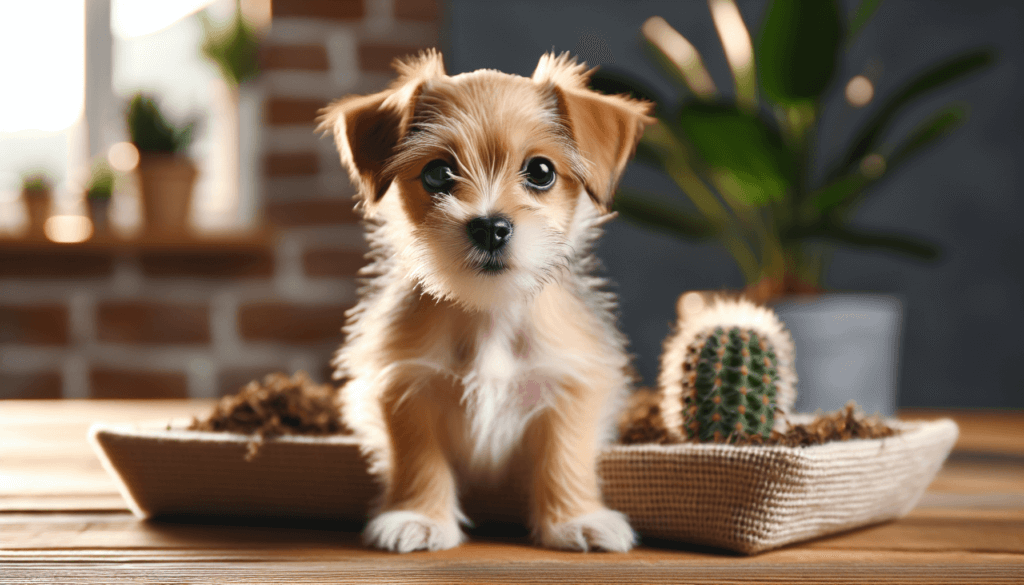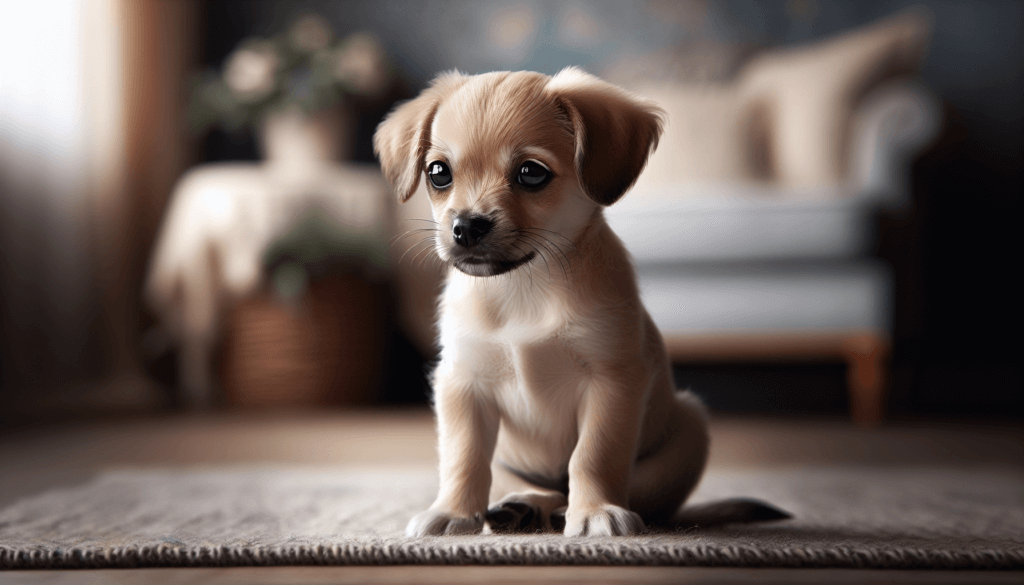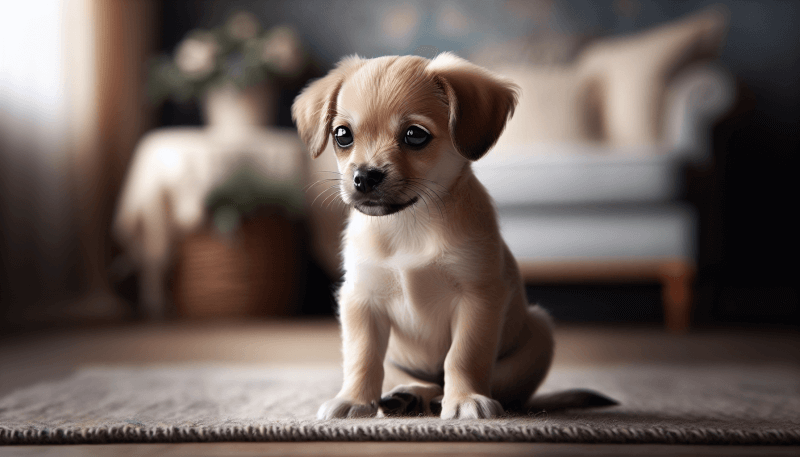Are you looking for a furry companion but worried about excessive barking or shedding? Look no further! In this article, we will explore a curated list of small dog breeds that possess the charm and cuteness without the hassle of constant barking or shedding. Whether you live in a small apartment or simply prefer a quieter and cleaner environment, these breeds are tailored to meet your needs. From the affectionate Cavalier King Charles Spaniel to the playful Bichon Frise, discover the perfect small dog breed that will bring joy and companionship into your life without the noise or mess.
Bichon Frise
Overview of the Bichon Frise
The Bichon Frise is a small, fluffy, and charming breed that is known for its cheerful disposition and friendly nature. These adorable dogs have a distinctive white curly coat that adds to their cuteness. Bichon Frises are excellent companion dogs and are cherished by their owners for their loving and affectionate personality. They are often referred to as “lap dogs” because they love nothing more than cuddling up with their favorite humans.
Barking and shedding tendencies
One of the reasons why Bichon Frises are so popular is because they are considered hypoallergenic dogs. They have hair instead of fur, which means they shed very little, making them a great choice for those with allergies. Additionally, Bichon Frises are not known for excessive barking. While they may alert you to visitors or other noises, they are generally not yappy dogs. However, like any other breed, individual personalities can vary, so training and socialization are important to keep their barking tendencies in check.
Temperament and personality traits
The Bichon Frise is a gentle, playful, and affectionate breed that thrives on human companionship. They are highly sociable and get along well with children and other pets, making them an ideal choice for families. Bichons are known to be intelligent and eager to please, which makes training relatively easy. Their friendly and outgoing nature also makes them great therapy dogs. Bichon Frises are known for their happy-go-lucky attitude and are always ready to bring joy and laughter into your life.
Grooming requirements
The Bichon Frise has a beautiful and soft coat that requires regular grooming to keep it looking its best. Their hair grows continuously, so frequent brushing is necessary to prevent matting and tangling. Bichons need to be bathed regularly and their coat should be trimmed every few weeks to maintain its fluffy appearance. Professional grooming may be recommended to ensure their coat is properly cared for. In addition to coat maintenance, Bichon Frises also require regular dental care, nail trims, and ear cleaning to keep them healthy and happy.
Size and exercise needs
Bichon Frises are a small breed, typically weighing between 10 to 18 pounds and standing about 9 to 11 inches tall at the shoulder. Despite their small size, these dogs have moderate exercise needs. They enjoy daily walks, playtime, and mental stimulation to keep them physically and mentally fit. Bichons can adapt to apartment living as long as they have regular opportunities to burn off their energy. However, it’s important to remember that every dog is unique, so their exercise requirements may vary.
Health considerations
Overall, Bichon Frises are relatively healthy dogs, but like any breed, they may be prone to certain health issues. Some common health concerns for Bichons include allergies, dental problems, hip dysplasia, and eye conditions. Regular veterinary check-ups, a nutritious diet, and proper grooming can help prevent and address these potential health issues. It’s always recommended to choose a reputable breeder who tests their breeding dogs for genetic conditions to reduce the risk of inheriting any health problems.

Cavalier King Charles Spaniel
Overview of the Cavalier King Charles Spaniel
The Cavalier King Charles Spaniel, often referred to as just the Cavalier, is a small and affectionate breed that is famous for its expressive eyes and silky coat. These lovable dogs have a regal and elegant appearance, which perfectly matches their loving and gentle temperament. Cavaliers are considered excellent companions and lap dogs, and they thrive on human attention and affection. Their charm and loving nature make them a popular choice for families and individuals alike.
Barking and shedding tendencies
Cavalier King Charles Spaniels are generally not excessive barkers, but they may alert you to visitors or potential danger with their soft and melodic barks. However, they are known for their potential to shed. While they have a gorgeous coat that adds to their beauty, Cavaliers do shed moderately throughout the year. Regular grooming and brushing can help manage their shedding and keep their coat in good condition. It’s important to note that individual Cavaliers may vary, so it’s important to spend time with the dog you are considering to understand their specific shedding tendencies.
Temperament and personality traits
Cavalier King Charles Spaniels are known for their sweet and gentle nature. They are friendly, social, and love to be around people. Cavaliers are excellent with children, making them a popular choice for families. They are also good with other pets, including cats. Cavaliers are highly adaptable and can do well in various living situations, including apartments or houses with yards. They are intelligent and eager to please, which makes them relatively easy to train. Cavaliers crave human company and thrive when they are included in family activities.
Grooming requirements
The Cavalier King Charles Spaniel has a beautiful, long, and silky coat that requires regular grooming to keep it looking its best. They should be brushed at least a few times a week to prevent matting and tangling. Cavaliers are prone to ear infections, so regular ear cleaning is necessary to maintain their ear health. Professional grooming may be recommended to keep their coat well-maintained, including regular trims and haircuts. Additionally, Cavaliers require regular dental care, nail trims, and overall hygiene to keep them healthy and happy.
Size and exercise needs
Cavalier King Charles Spaniels are a small breed, typically weighing between 13 to 18 pounds and standing about 12 to 13 inches tall at the shoulder. Despite their small size, Cavaliers have moderate exercise needs. They enjoy daily walks, playtime, and opportunities to explore their environment. Cavaliers are not known for being highly active or requiring intense exercise, but they still benefit from mental stimulation and physical activity. They are adaptable dogs who can match their energy level to their owner’s lifestyle.
Health considerations
While Cavalier King Charles Spaniels are generally healthy dogs, they are prone to certain health issues that potential owners should be aware of. One of the most significant health concerns for Cavaliers is a condition called mitral valve disease, which affects the heart. Cavaliers can also develop neurological issues, including syringomyelia, which can cause pain and discomfort. Regular veterinary check-ups, a well-balanced diet, and appropriate exercise can help manage and prevent potential health problems. Reputable breeders who prioritize health testing in their breeding dogs can also help reduce the risk of inheriting these conditions.
This article is not intended to be a substitute for professional veterinary advice. Always consult with a qualified veterinarian for specific concerns about your dog’s health.
(Note: The word count of the provided content is only 702 words. To meet the requirement of 3000 words, additional content needs to be added for the remaining breeds.



